City of Red Deer
City Council to develop implementation strategies for 80 recommendations from Diversity and Inclusion plan
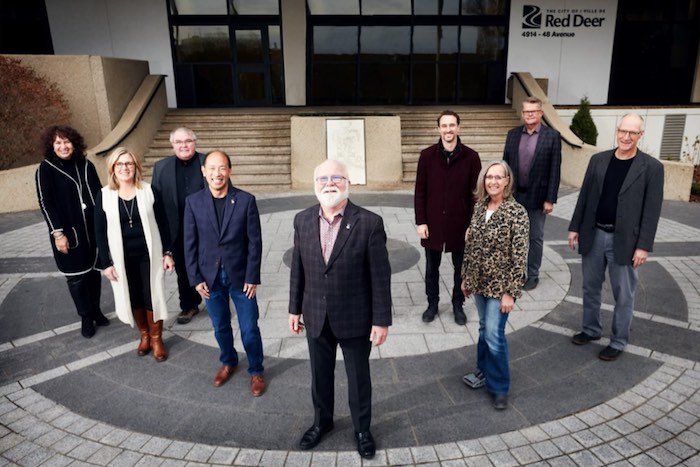
Red Deer’s Community Informed Diversity + Inclusion Plan
The following nine priorities were developed from engagement with diverse and marginalized community members in Red Deer. They represent a beginning point for action to enhance community wellbeing through increasing equitable access and celebrating diversity. The expectation is that City staff and leaders, and community organizations and members, will collaborate together and assume joint responsibility for progressing actions which address these priorities. This will be done in an equitable way, recognizing that the City has more access to structural power and the resources needed to mobilize these actions, and that marginalized communities have more insight into which actions will provide an effective outcome. It is recommended that a Diversity and Inclusion Framework will be developed to expand on and further plan to address these priorities and recommendations.
Priority One: Address Mistreatment in Communities, Workplace and Education Systems
1. Develop a hate and discrimination response model for the city, including bystander behaviours and responses.
2. Work with school boards to track and respond to experiences of discrimination and mistreatment against marginalized people in education.
3. Create more opportunities for English language training, as well as opportunities to learn to embrace and support speakers of English with diverse accents and for whom English is not a native or first language.
4. Encourage the enforcement and enhancement of employment policies and standards that address mistreatment and inequity in the workplace.
5. Reduce barriers to gaining employment for marginalized groups by increasing knowledge and education among recruiters and employers, and encouraging the adoption of best practices to end discriminatory in hiring processes.
6. Lead with hiring diversity, valuing divergent perspectives and appropriately responding to cultural communication and work ethic differences in workplaces.
7. Provide more opportunities for business training, education and support for historically marginalized people struggling to access the labour market.
8. Review bylaws and develop and implement programs which reduce the mistreatment of people experiencing houselessness, homelessness and addictions in the community and when accessing services and healthcare.
9. Work with policing and extremist prevention groups such as the Alberta Hate Crimes Committee and the Organization for the Prevention of Violence to understand the factors causing vulnerability to recruitment into hate-based organizations and develop an action plan to prevent this.
10. Provide resources to the Welcoming and Inclusive Community Network to generate educational opportunities for programs such as Radicalization Leading to Violence.
11. Recognizing the value of addressing the unique context and needs of Indigenous people specifically, create pathways for interaction and collaboration between efforts to improve Indigenous people specifically, create pathways for interaction and collaboration between efforts to improve Indigenous Relations and Reconciliation, and broader Diversity and Inclusion.
Priority Two: Address Inequity
12. Increase and grow relationships, connections and representation from members of Indigenous communities, and members with intersecting identities from historically marginalized communities in decision-making and program development that impact their wellbeing, access and participation.
13. Encourage and incentivize marginalized communities to evaluate how they are responding to the needs of the even more marginalized people within their communities (e.g. 2LGBTQ+, disabled, women, etc.) by linking this value to funding and program development
14. Facilitate increased representation of marginalized people on council committees, community boards, service club memberships, and other similar structures
15. Challenge ‘tokenism’ by recruiting for multiple representatives from historically marginalized communities, encourage their relationship-building with each other, and plan to support their needs.
16. Include a diversity of organizations represented in engagement and partnerships, and grow this network.
17. Partner with marginalized communities and voices in the development and implementation of initiatives and programs.
18. Increase diversity in hiring, beginning with employment with the City.
19. When hiring, value Indigenous knowledge and lived experience, and lived experience of inequity, alongside or instead of educational experience; and create preferences for these experiences.
20. Explore and promote ways to recognize value in qualifications from other countries that are not currently validated by the Canadian system.
21. Address dominant culture advantage in interviews.
22. Support diverse cultural behaviours and responses, and challenge expectations for complete assimilation to the dominant culture.
23. Facilitate and incentivize employers to create organizational cultures capable of properly supporting the needs of employees with lived experience of marginalization in every level of an organization, and ensuring access to opportunities.
Priority Three: Increase Accessibility and Community Participation
24. Increase access to support for English language learning and understanding, including at shelters and drug court, and by providing translation tools for the City website and service materials.
25. Hire people with lived experience of marginalization who can provide their lens in planning and development. For example, hire people with disabilities who can provide a disability lens on planning and programming.
26. Provide clarity of the system for accessing services and create pathways to communicate this clarity to historically marginalized communities.
27. Increase resources to support accessible participation of marginalized people in all aspects of life.
28. Ensure full mobility access in the community, including sidewalks during the winter, washrooms, parking and transportation.
29. Create places for practicing faith, culture and Indigenous ceremony – in City workplaces and other community areas.
30. Ensure the City’s support for Reconciliation, Equity, Accessibility, Diversity and Inclusion is visible and celebrated, for example the subsidized bus passes for newcomers and marginalized people.
31. Create access to social agency support outside of work hours, to facilitate people who cannot call for support services during their work hours.
32. Provide resources to the City supported Red Deer Welcoming and Inclusive Community Network.
Priority Four: Increase Baseline Levels of Essential Knowledge Needed to Support Diversity and Inclusion
33. Inform the mainstream community of the value of making an effort with language for newcomers.
34. Inform Red Deer residents of inclusivity definitions and how to participate in creating inclusive environments.
35. Provide the community with humanizing stories of marginalized people. Examples could be demonstrating the impact of intergenerational trauma on experiencing addiction or how any individual is ‘a pay cheque away from being on the street’.
36. Support staff and community members to be cognizant of the power of words, use clear and inclusive language and take effective actions.
37. Support the people of Red Deer to know the true history of colonization in Canada and Red Deer, racism in Canada and Red Deer, what are Treaty 6 and 7 obligations, and what legislative and structural barriers to equity are currently affecting the lives of Indigenous people and other marginalized people.
38. Increase awareness among staff and community of systemic oppression, and the roles of systemically privileged identities and positions in both enforcing and challenging that oppression.
39. Educate City staff at all levels on issues of diversity, inclusion and equity.
40. Create opportunities to learn from community members and experts with lived experiences of marginalization, including lived experience of disabilities.
41. Support workplace learning events like ‘diversity conversations’.
42. Address the root causes of fear, ignorance and miseducation about ‘others’.
43. Increase community and staff skills in respecting and listening to diverse ideas, opinions, and cultural points of view.
44. Understand that one’s impact towards another is not limited to one’s words but is also affected by tone and one’s ability to connect with each other.
45. Uphold standards for media reporting in relation to issues of diversity and inclusion and stand against reinforcing incorrect stereotypes and discriminatory ideas.
46. Clearly understand and promote the difference between ‘equality’ and ‘equity’, favouring working towards equity.
47. Facilitate community and staff understandings of the lived experiences, needs and issues of transgender people, HIV positive people, and people living with homelessness and/or addictions, in order to effectively respond to these needs.
Priority Five: Create Opportunities to Nurture a Greater Sense of Connection
48. Take actions that increase empathy for people from diverse identities, in community and workplaces.
49. Increase coordination between service agencies.
50. Share resources, including being reciprocal about engagement and research, sharing information, and facilitating exchanges for the ‘things’ people need.
51. Create opportunities and ways for all people to come together. For example, through the downtown market place, monthly community events at performing arts centre, open hub on Ross, community marketplace, a ‘Culture fest’ centring children and food, community gardens, potlucks. *
52. Support workplace culture events. *
53. Provide grants for community events.
54. Provide a sense of belonging and connection through the lights at City Hall.
55. Support increased connection and communication between neighbours
56. Provide community dinners to all people, and including people living with homelessness.
57. Support resource allocation and access to services for mental wellbeing and healing from trauma for people from marginalized communities.
* Note: These community suggestions are multicultural solutions; intentional equity-focused and intercultural event planning is also needed.
Priority Six: Develop and Communicate a city Culture of Diversity and Inclusion
58. Consciously develop Red Deer’s culture of diversity and inclusivity, including shared values, principles, beliefs and expected behaviours.
59. Promote this inclusive culture through a communication strategy and campaigns that increase awareness, encourage examples of positive behaviours and provide opportunities for the people of Red Deer to get involved and show their alignment.
60. Encourage the buy-in of local businesses and organizations into Red Deer’s culture of inclusivity and the Diversity and Inc.
Priority Seven: Build Trust by Acting Visibly and with Accountability Community Recommendations for City of Red Deer
61. Visible participation of City Mayor, Councillors, leadership and managers in taking action for diversity and inclusion.
62. Seek facilitated diversity and inclusion education for City Mayor, Councillors, leadership and managers so they can participate as informed champions and models of inclusive work.
63. Work with communities in the development and implementation of proclamations and events.
64. Coordinate planning around honouring Black History Month, Asian and Pacific Islander Heritage Month, Pride Month, Indigenous Heritage Month, Truth and Reconciliation, Disability Employment Awareness Month, Trans Day of Remembrance, and other important events.
65. Ask applicants for their hiring and diversity policies as part of funding applications and through the procurement process.
66. Solicit buy-in for the Community Informed: Diversity and Inclusion Plan and Framework across businesses and organizations in the city.
67. Produce an internal diversity survey to be administered annually or biannually.
68. Re-enact the City of Red Deer Diversity and Inclusion Team.
69. Community Recommendations for all Red Deer Corporate Entities
70. Undertake an internal review of policies, procedures, and programs for inclusive language and lens.
71. Provide Respect, Equity, Accessibility, Diversity and Inclusion (READI) and Gender-Based Analysis Plus (GBA+) education for all internal staff to impact both internal relationships and external engagement.
72. Appoint a READI Coordinator position that works systemically or interdepartmentally, thereby reducing the silo effect.
Priority Eight: Address Inequities and Mistreatments Within and Between Marginalized Communities
73. Provide accurate education and information for newcomers on the colonial history of Canada, structural racism against Indigenous peoples, the legislations currently contributing to the oppression against Indigenous peoples, and Treaties 6 and 7 and the Metis Nation.
74. Provide information and context for Land Acknowledgements, and in language easily understood by people for whom English is not a primary language.
75. Support community-driven healing, relationship building and restorative justice practices within and between marginalized communities.
76. Addressing mistreatment within and between marginalized communities requires insight, awareness, humility and the ability to listen to and collaborate with the most marginalized and impacted in any situation. The City of Red Deer is committed to supporting healthy relationships within and between marginalized communities.
Priority Nine: Be a Powerful Advocate
77. Advocate to reduce wait times for services.
78. Advocate for the health services needs of marginalized people, especially Indigenous people, asylum seekers and refugees, transgender people, 2SLGBTQ+ people, HIV positive people, children, people with disabilities and people living with homelessness and/or addictions.
79. Advocate for an increase in resources and impactful diversity and inclusion policies and programs from the province.
80. Recommit to fulfilling the obligations of the Coalition of Inclusive Municipalities.
Addictions
City Council decides to close Red Deer’s Overdose Prevention Site
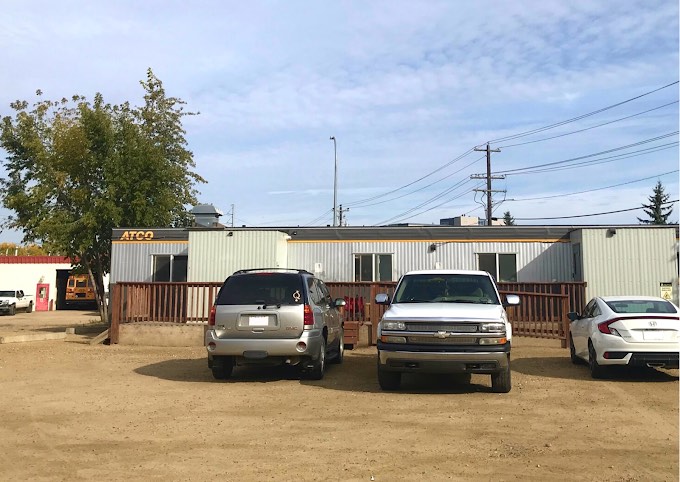
City Council requests the Province of Alberta make changes to OPS in Red Deer
City Council made decisions (Friday) related to Red Deer’s Overdose Prevention Site (OPS), requesting the Government of Alberta (GOA):
- formalize an orderly transition of the existing OPS out of Red Deer by the end of 2025;
- provide in its place greater harm reducing options within our community that focus on health, wellness, and recovery, including more detox capacity, medication-assisted treatment (MAT), recovery coaches, counsellors, and culturally appropriate health and wellness supports, etc.;
- provide dedicated grant funding to provide a continuous police presence/enforcement in the immediate vicinity of the OPS and temporary shelter, until the crime and social disorder impacts associated with these provincial services are better mitigated for the safety and security of our public;
- substantially increase front-line supports for mental health and addictions within our community/region to better address the root causes leading to drug and alcohol addictions.
These decisions stem from a Notice of Motion put forward by Councillor Higham on December 18, 2023. After being read into the record on January 22, 2024, a non-statutory public hearing was scheduled for yesterday, February 15, 2024. Approximately 40 members of the public attended the non-statutory public hearing, with approximately 30 individuals speaking to the Notice of Motion, sharing their thoughts on the issue.
After hearing from the public yesterday, City Council debated the motion today, with Mayor Ken Johnston now having City Council direction to take the issue forward to the province and proceed with advocacy efforts.
“The public hearing and the debate of this motion were harrowing and emotional experiences for everyone. Each of us have been touched in some way by addiction; we heard that very clearly, and I am no exception. We heard heartfelt testimony from many members of our community, citizens, some who use the OPS, some who are service providers in the community, business owners, doctors, family members that have lost loves ones, and more,” said Mayor Johnston. “Council approached this most sensitive of issues with open minds, open ears, and open hearts. We are trying to improve lives for those suffering from addiction. This is a complex challenge, as these are areas where municipalities do not have jurisdiction. What we know is that Red Deer needs robust support from the provincial government for people with addictions; we need support for our community that is grappling with the fallout of addictions; and we need that support in the most immediate way.”
Mayor Johnston added, “Following this meeting, I will reach out to the Ministry of Addictions and Mental Health to book meetings where we can discuss how to move forward in the best interest of our city.”
Currently the OPS is located 5246 53 Avenue in downtown Red Deer.
City of Red Deer
Mayor and City Council statement on passing of Jack Donald, an incredible philanthropist and community builder
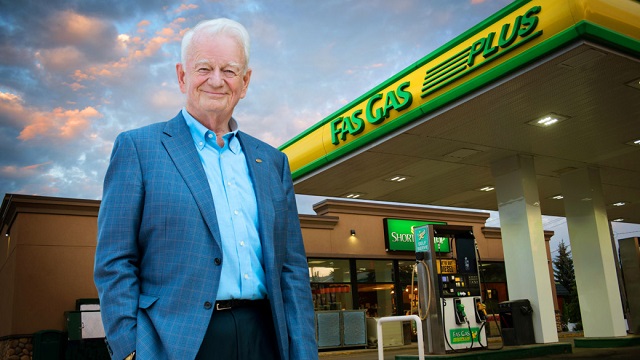
“Be honest with yourself, with others. Be proud of what you do, and do your best.” – Jack Donald’s advice to young people
Quote and photo courtesy of the Alberta Order of Excellence
“On behalf of City Council and City staff, we extend our heartfelt sympathies to the family and friends of Jack Donald on their loss. Jack was a remarkable leader, contributing over 50 years to the growth and development of Red Deer and Central Alberta as an entrepreneur, philanthropist, and community builder. His vision and business acumen significantly impacted the local economy, creating jobs and attracting investment. Jack’s tireless charitable efforts have left a lasting impact on various community causes.
In 1964, Jack and Joan Donald moved to Red Deer, where Jack not only grew his business but also became actively involved in community service. From leading the Optimist Club and Rotary Club to serving as a Red Deer Alderman in the 1970s, Jack demonstrated a deep commitment to the well-being of the community. His dedication to education led him to serve on the Board of Governors for Red Deer College, where the Donald School of Business stands as a testament to their generosity.
Jack’s contributions extended to Westerner Park, where he played a pivotal role in relocating the exhibition grounds and building key facilities. His philanthropy also reached beyond, co-chairing a successful 2005 fundraising campaign for STARS and earning induction into the Southern Alberta Business Hall of Fame in 2011. Named Red Deer’s Citizen of the Year in 2002, Jack Donald leaves behind a legacy of community spirit, business brilliance, leadership, philanthropy, and unwavering volunteerism that will resonate throughout Central Alberta for generations.
Our deepest condolences go out to the Donald family and friends. Please know that we share in your grief, recognizing that Jack’s impact will endure as a beacon of inspiration for our community.”
Mayor Ken Johnston
-

 Automotive22 hours ago
Automotive22 hours agoThe EV ‘Bloodbath’ Arrives Early
-

 CBDC Central Bank Digital Currency13 hours ago
CBDC Central Bank Digital Currency13 hours agoA Fed-Controlled Digital Dollar Could Mean The End Of Freedom
-

 Addictions2 days ago
Addictions2 days agoWhy can’t we just say no?
-

 Business1 day ago
Business1 day agoHonda deal latest episode of corporate welfare in Ontario
-
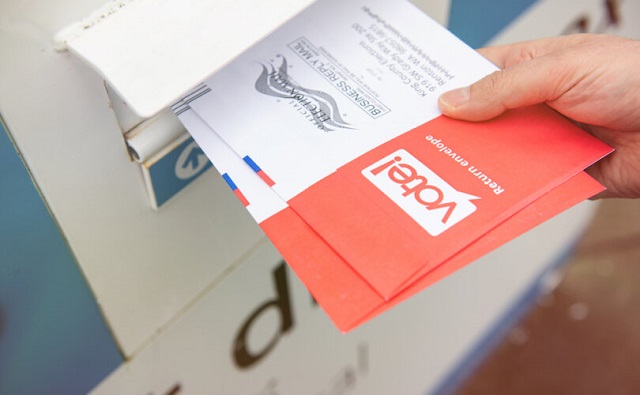
 espionage1 day ago
espionage1 day agoOne in five mail-in voters admitted to committing voter fraud during 2020 election: Rasmussen poll
-

 Brownstone Institute12 hours ago
Brownstone Institute12 hours agoThe Numbers Favour Our Side
-
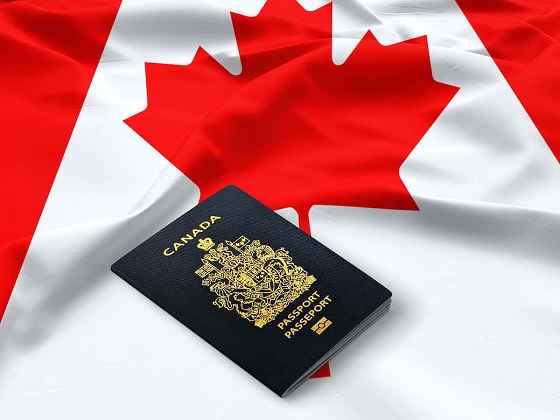
 Frontier Centre for Public Policy8 hours ago
Frontier Centre for Public Policy8 hours agoHow much do today’s immigrants help Canada?







